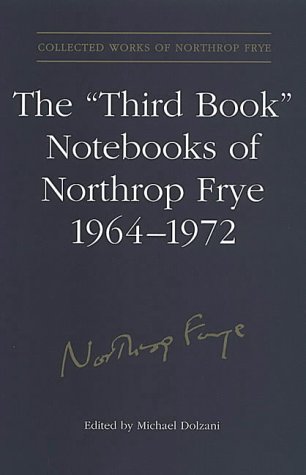Here is my letter to University of Toronto president Naylor regarding the Centre for Comparative Literature
Dear President Naylor,
I write this on the 98th birthday of Canada’s most famous literary scholar, Northrop Frye. It turns out, unfortunately, not to be a very happy birthday. I have just learned, with considerable shock, of the plan to abolish the Centre for Comparative Literature, founded by Frye back in 1969. I am writing, as an alumnus of the University of Toronto, as Frye’s former research assistant, and as one of the editors of the Collected Works of Northrop Frye project published by the University of Toronto Press, to ask the University to reconsider its decision.
I will always be grateful to the University for taking a chance in 1978 and admitting a student from an unknown small college in Ohio. Although my experience in English was completely positive, I was sometimes told by other graduate students that Comparative Literature was where the really exciting stuff was going on. From everything that I have read, that Centre is as vigorous and important now as it was then, yet that has not been a factor in the decision. Yes, it is good that people are not going to lose their jobs, but there will be another kind of loss, for the kind of scholarship enabled by Comparative Literature will become impossible.
To non-academics, “comparative literature” may seem just one more arcane, narrow specialization. If people do not even know what comparative literature is, it is understandable if they are not motivated to fund it. Comp Lit is a centrifugal approach to literary studies that reverses the centripetal approach of a traditional English department. What I mean is that, if you have a degree in English, your program restricts you to the literature of one language, and usually one country and historical period. When you go on the job market, you peddle yourself as, say, “eighteenth-century British.” The centripetal approach originated in the nineteenth century and remains valid; my own degree is in English. However, it is next to impossible within such a framework to study English centrifugally, in terms of its connections with other languages, literatures, and cultures. Yet those connections are crucial on three levels, linguistic, literary, and social. As Frye pointed out in an address to the Canadian Comparative Literature Association in 1974, “In English literature, the major influences have been Latin, French, and Italian: the influence of Old English on later developments has been minimal, as has that of medieval English apart from Chaucer. The most familiar schemata of English poetry, rhyme and meter, were taken over from French. And underlying a great deal of its fiction is a solid basis of popular literature, in folktale and ballad, which has travelled around the world without regard to linguistic barriers.” To this we may add that when literary theory came of age in the second half of the twentieth century, there was great difficulty accommodating it in traditional English departments, because theory by definition asks general rather than specialized questions. Frye’s own wide-ranging work was an influential example here. In a world that is becoming more and more interconnected, and more and more obsessed by its own interconnectedness, it seems incomprehensible that the University would seek to abolish a discipline that studies exactly those connections.
I know that there are financial considerations involved. Fifty-five million dollars is from one point of view a lot of money. From another point of view, it is the bonuses of perhaps six CEOs. The question is what our values are. The University’s financial crisis has been largely created from outside itself. We owe the global financial meltdown to people who did not study the humanities, and who consequently made foolish and destructive decisions out of blindness. No, the study of literature does not necessarily lead to wisdom and sensitivity—but it is one of the few things that can enlarge our being if we are open to it. That was Frye’s faith. I truly hope the University may reverse its decision and find other ways to close the budget gap.
Respectfully,
Michael Dolzani
Professor of English
Chair, English Department, Baldwin-Wallace College, Berea, Ohio


Dear Michael:
Just read your and Alvin’s pieces on the blog. I’m not sure pleading to Naylor will do. Do you have the energy ( I don’t, and anyway I don’t have the clout) to put together a one page petition and through the network to solicit signators? I think there will be a thousand, and it will scare the hell out of the admin bunch.
This wild web thing gives the weapon. Let’s use it. Someone like you with the guts has to act. I’m not sure what I will do, but I will try to promote this idea on the Frye site. I won’t mention you, but I hope you will be able to spearehead this counter attack on the forces of the night.
Bob Rodgers